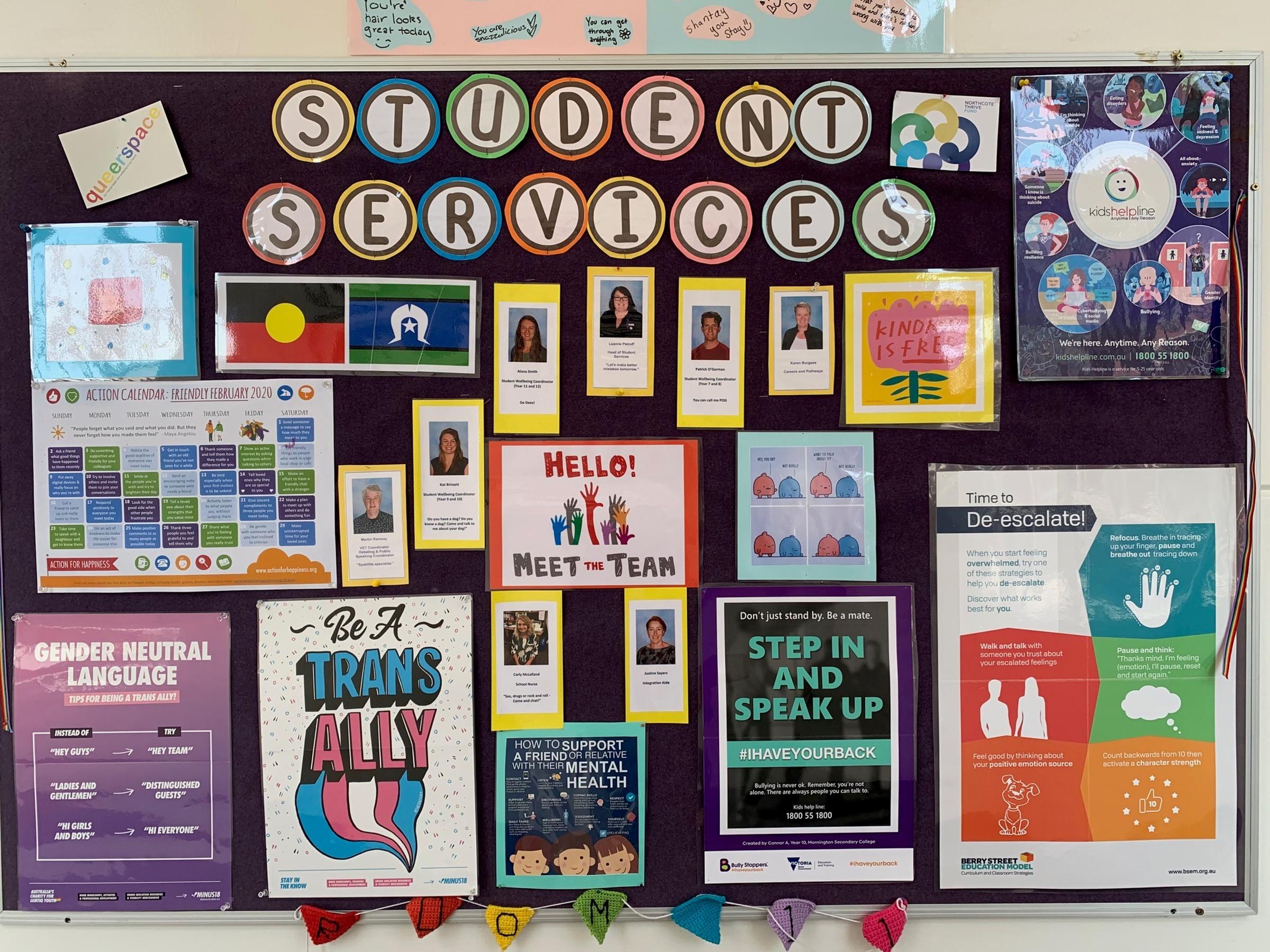Student Service News

Welcome back - we are here to help
A warm welcome to Term 4 for all our students – whether you’re learning remotely or onsite. Your Student Services Student Wellbeing Team is here to help – we are continuing to function as normal here at school, with remote-support options available for students who are learning from home.
Sleep for Teens
The COVID-19 pandemic has brought a lot of change to our routines – including how we sleep. With face to face learning returning, for some students this week, it is a good time for some information on sleep hygiene.
“Sleep is a really important part of our life. It helps us to feel well, focused and happy. Most people experience a bad night’s sleep now and again, but if you regularly don’t get enough sleep it can really affect how you feel and what you can get done during the day” (Headspace, 2020).
How much sleep do I need?
Teens typically need about 8-10 hours of sleep per night, but it is common for the average teen to get 7 hours or less.
What gets in the way of a good night’s sleep?
Biological factors: Puberty or changes to your body clock.
Environmental factors: Social pressure, school workload, use of electronic devices.
What is affected by not getting enough sleep?
- Mood – Can cause teens to be irritable and moody all day.
- Behaviour – Are more prone to risk taking behaviours.
- Thinking – Can result in attention problems, memory problems, lead to bad decision making, slow reaction time and stunt creativity.
- Academic Performance – Are more likely to do poorly in school, fall asleep during class, have multiple absences and be consistently late to school.
Tips for a good night’s sleep
- Maintain regular sleep schedule – Try going to bed and waking up at around the same time every day, including non-school night.
- Be consistent on weekends – Although you may stay up a little later on weekends, you should not sleep in to catch up on sleep you missed during the week. It will be harder to get back on track to your regular schedule.
- Create a sleep friendly environment – Your bedroom should be comfortable, cool, quiet and dark. The bed should only be used for sleeping, try not to do homework or listen to music in bed.
- Keep a consistent bedtime – Try “wind down” by doing less stimulation activities such as reading or listening to calm music. Do not use this time to watch television, use the computer or talk on the phone.
- Try to incorporate exercise into your daily routine, it may help you fall asleep more easily and sleep more deeply.
- Try to limit how much caffeine you have including coffee, energy drinks and soft drinks, and try to avoid entirely after lunchtime.
Talk to Ten
Talk to Ten is an online webinar series by Maria Ruberto (incredibly engaging and energetic presenter) for parents regarding supporting adolescent mental health. You can register for any or all of the webinars- each one is only 10 minutes, with Q&A to follow.
Topics include:
Coping with change from Covid-19 lockdown
Managing Blended Spaces in CV19
Signs your child might be worried/anxious
Soothing through co-connections
The wheel of wellbeing
Creating calm sleep in lockdown
Understanding the circles of emotions
Play and pleasant emotions
Movement to manage moods
Constructive conversations with children
